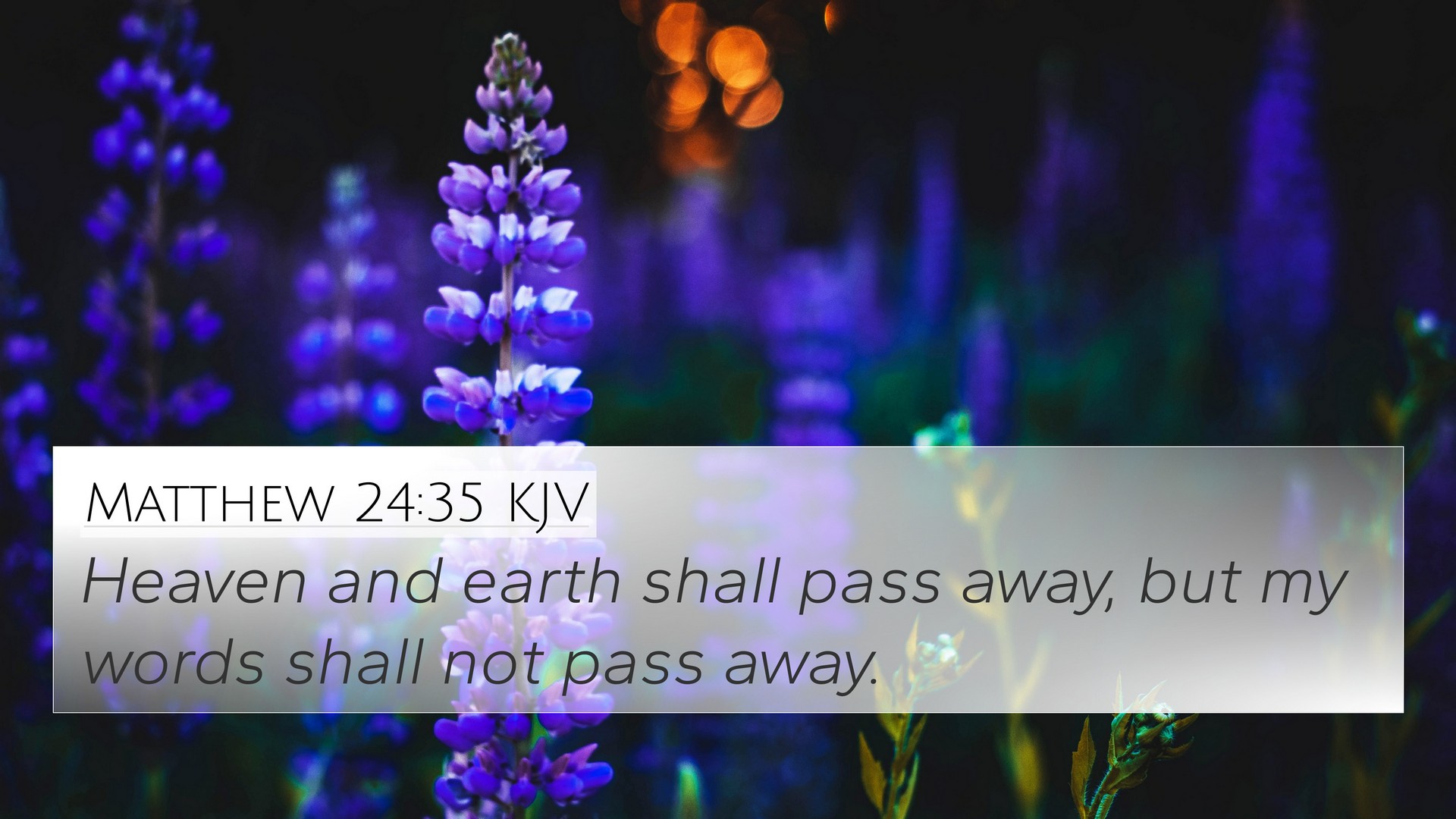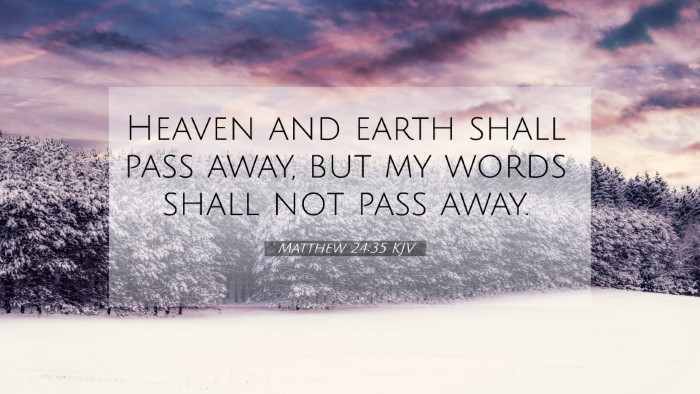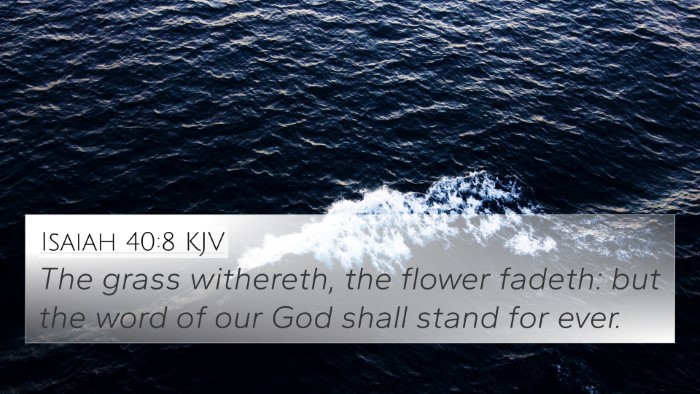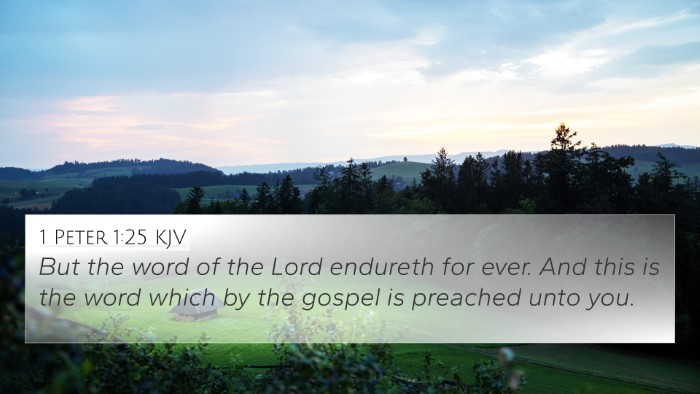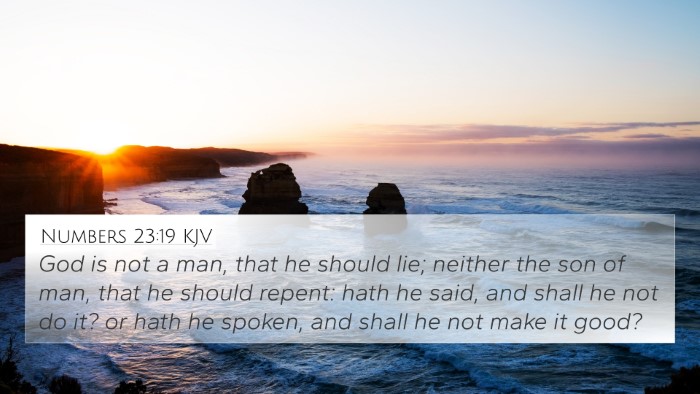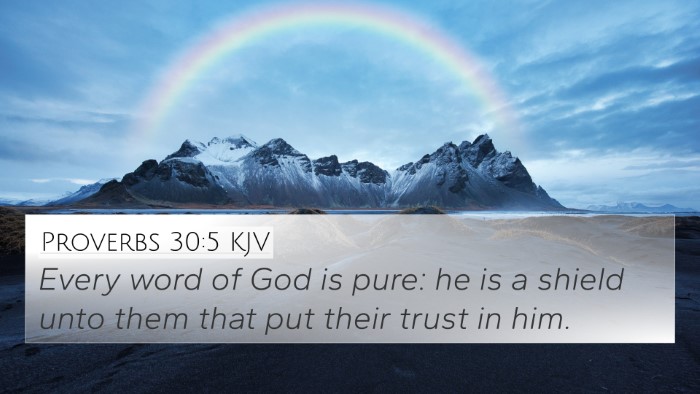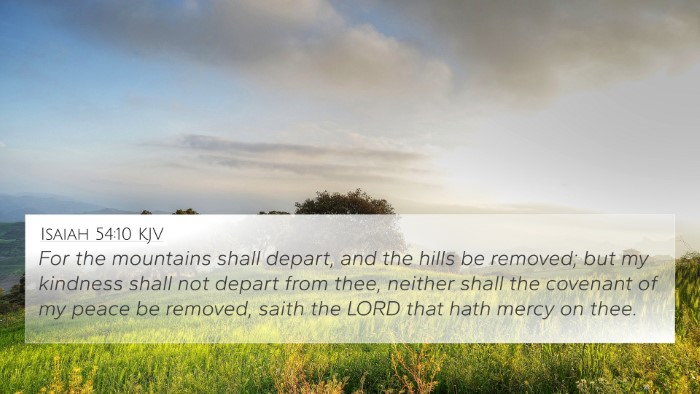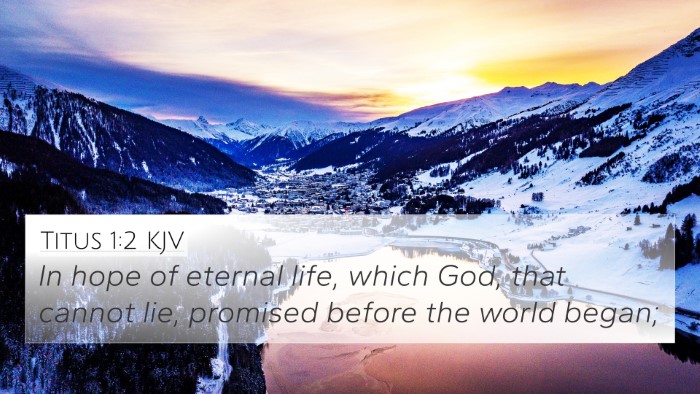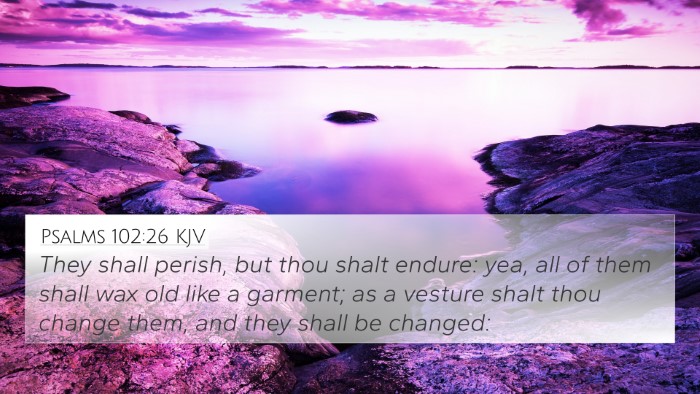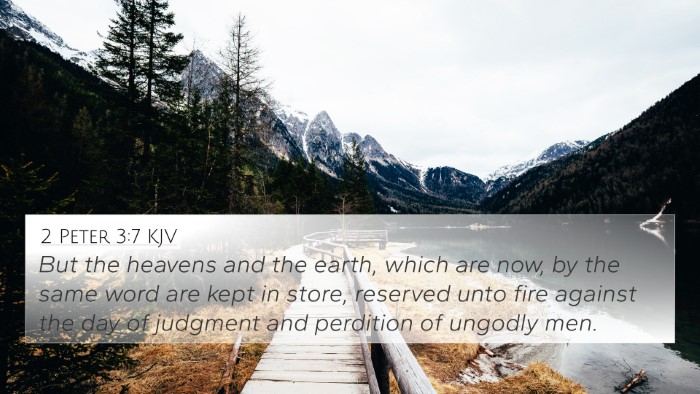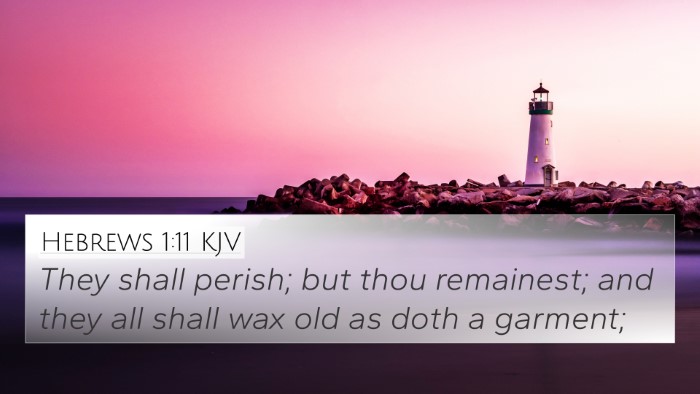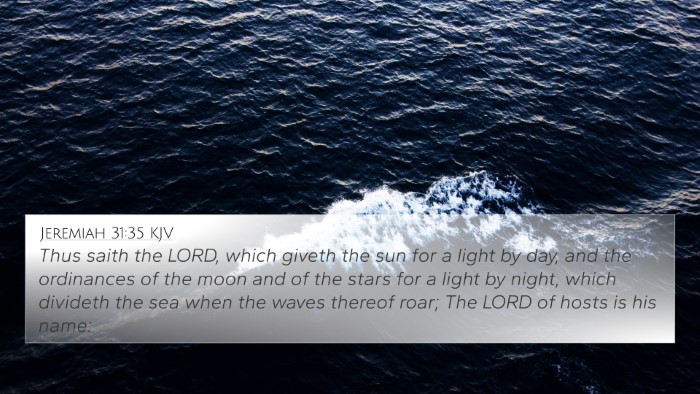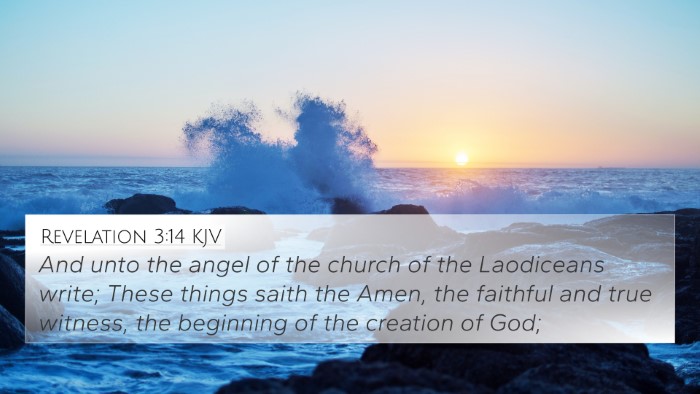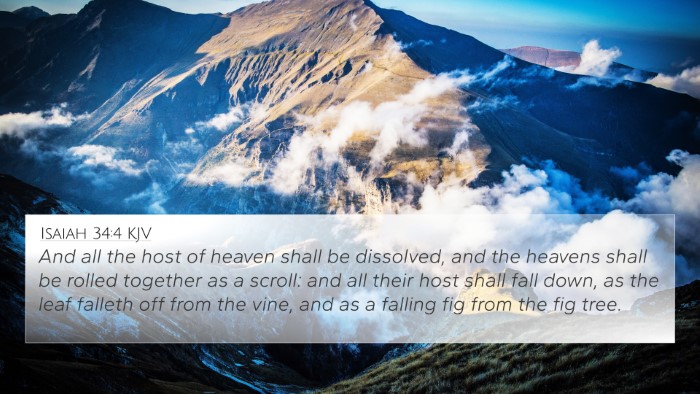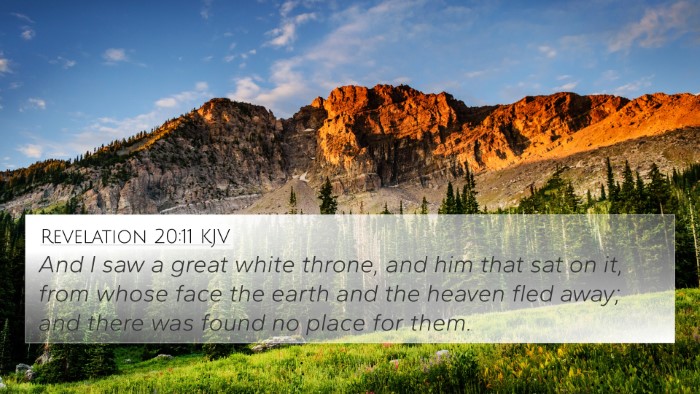Understanding Matthew 24:35
Bible Verse: Matthew 24:35 - "Heaven and earth will pass away, but my words will never pass away."
Context and Overview
The statements of Jesus in Matthew 24 come during His discourse on the end times, often referred to as the Olivet Discourse. The backdrop of this chapter features the destruction of the temple and the signs of the times leading up to the second coming of Christ. This particular verse serves as a profound declaration of the permanence and authority of Christ's words amid the transitory nature of the world.
Summarized Insights from Public Domain Commentaries
Matthew Henry's Commentary
Matthew Henry emphasizes the certainty and permanence of God's Word. He notes that while the physical universe and all human achievements are subject to decay and will one day disappear, the divine truths contained in Christ's teachings remain eternal. Henry encourages believers to find comfort in the reliability of God's promises and the everlasting nature of His Word.
Albert Barnes' Notes on the Bible
Albert Barnes expounds on the contrast established between the temporal and eternal. In his commentary, he points out that Christ’s Word offers assurance of hope and consistency in an ever-changing world. He declares that while the earth may change, the doctrines of Christ will persist, underscoring the importance of clinging to His teachings through trials and tribulations.
Adam Clarke's Commentary
Adam Clarke offers a more analytical perspective, discussing the implications of Christ’s statement regarding the stability of His words. Clarke argues that understanding this verse fosters a deeper faith in the Scriptures. He highlights that the teachings of Jesus not only outlast the physical realm but also serve as a guiding light for believers navigating life's challenges.
Thematic Cross-Referencing of Matthew 24:35
To further enrich your understanding, it is valuable to examine related verses that echo the themes of permanence and the authority of God's Word. Here are some key Bible verse cross-references:
- Isaiah 40:8: "The grass withers, the flower fades, but the word of our God stands forever." – This verse mirrors the idea of God’s Word as eternal and unchanging.
- 1 Peter 1:25: "But the word of the Lord endures forever." – Reinforcing the permanence of God's message.
- Psalm 119:89: "Your word, O Lord, is eternal; it stands firm in the heavens." – A poetic affirmation of the constancy of God's Word.
- Matthew 5:18: "For truly, I say to you, until heaven and earth pass away, not an iota, not a dot, will pass from the Law until all is accomplished." – A clear tie to the durability of God’s laws and commands.
- John 12:48: "The one who rejects me and does not receive my words has a judge; the word that I have spoken will judge him on the last day." – Emphasizing the weight and authority of Christ’s teachings.
- Hebrews 13:8: "Jesus Christ is the same yesterday and today and forever." – A reminder of the unchanging nature of Christ, which relates to the steadfastness of His words.
- Revelation 22:19: "And if anyone takes away from the words of the book of this prophecy, God will take away his share in the tree of life and in the holy city." – A stern warning that highlights the significance of adhering to God's Word.
Applications and Practical Insights
Understanding Matthew 24:35 invites believers to trust deeply in the promises of God as outlined in Scripture. The verse serves as a reminder amid a world of uncertainty:
- Faith and Assurance: Believers are reassured that, despite life’s tumultuous changes, God's promises will remain unbroken.
- Stability in Teaching: Emphasizes the importance of anchoring one’s faith in the eternal truths of the Bible over worldly occurrences.
- Encouragement to Share the Word: The permanence of Christ's teachings encourages believers to share these truths, knowing they will endure for future generations.
Conclusion
In conclusion, Matthew 24:35 encapsulates a profound truth about the eternal nature of the words of Christ. It encourages believers not only to cling to these words but also to engage in cross-referencing Biblical texts to solidify their faith in the tenets of Christianity. Through tools like a Bible concordance or a Bible cross-reference guide, one can delve deeper into the connections between Scripture, enriching one’s understanding of the comprehensive narrative of God’s redemption.
Further Reflections
Engaging in comparative Bible verse analysis allows individuals to explore the thematic Bible verse connections that exist throughout the Scriptures. It beckons believers to observe how various passages interlink, creating a tapestry of divine revelation that spans the Old and New Testaments.
